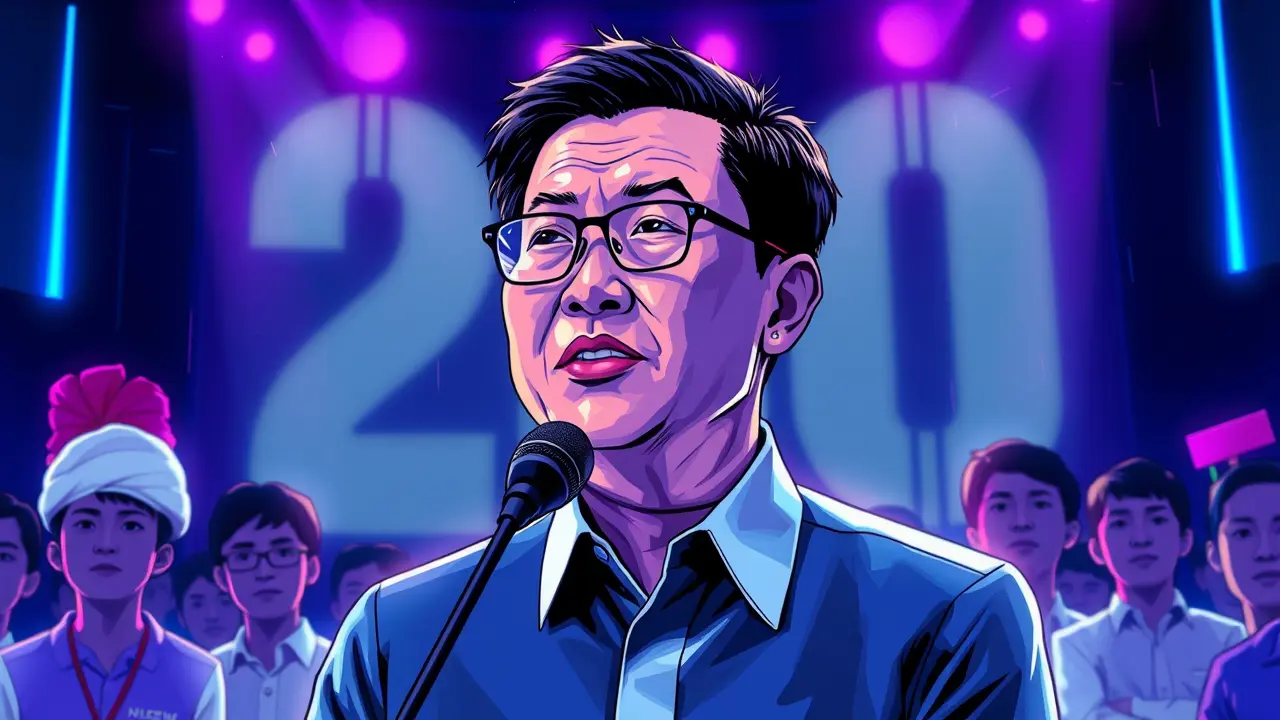
PoliticselectionsPost-Election Analysis
Singapore PM Reflects on Tough Election Battles
MA
Mark Johnson
3 hours ago7 min read
The political arena is heating up as Singapore Prime Minister Lawrence Wong navigates the treacherous landscape ahead of the 2025 general election, with internal warnings from People’s Action Party (PAP) members and supporters creating a palpable sense of siege mentality. Speaking at the PAP Awards and Convention, Wong revealed he’d been inundated with cautionary messages urging him to 'be prepared' for potential seat losses, a strategic heads-up that forced him to mentally fortify for every conceivable electoral outcome.This isn't just routine political posturing; it's a calculated maneuver in a high-stakes campaign where the PAP, which has held an iron grip on power since 1959, faces an increasingly sophisticated opposition. The Workers' Party's significant gains in the 2020 election, where they secured a record 10 seats and a second Group Representation Constituency (GRC), sent shockwaves through the establishment, proving that the electorate's appetite for diverse voices is growing.Wong, who took the helm in a carefully orchestrated succession plan, now stands as the party's new general on this political battlefield, his leadership style and policy agenda under the microscope. The 'sorry, we should have.' follow-up messages from those same predictors after the results—presumably from a by-election or internal party simulation—highlight the volatile, poll-driven nature of modern politics where internal surveys and ground sentiment can shift overnight. This scenario echoes historical pivots, like the 2011 'watershed' election where the PAP saw its vote share drop to a historic low of 60.1%, prompting a major soul-searching and policy recalibration under then-PM Lee Hsien Loong. For Wong, a former civil servant and finance minister, the challenge is twofold: he must galvanize the party's traditional base while appealing to a younger, digitally-native demographic demanding greater transparency and political pluralism.The convention itself served as a rallying point, a chance to deploy classic campaign tactics—unity messaging, award ceremonies to boost morale, and a clear narrative framing the election as a choice between proven stability and risky experimentation. Political strategists will be watching how Wong leverages his relatively fresh public persona against the opposition's ground game, particularly in hotly contested GRCs like Aljunied and Sengkang.The implications of even a modest seat loss could be profound, potentially weakening the PAP's supermajority and altering the dynamics of constitutional amendments and key policy debates. In the grand chessboard of Singaporean politics, every move is now critical, with Wong's team likely analyzing voter sentiment in swing districts, refining their digital outreach, and preparing for a media war where every soundbite and social media post is a skirmish. The ultimate test will be whether this pre-emptive mental preparation transforms into a resilient campaign strategy capable of weathering the storm and securing a convincing mandate for the fourth-generation leadership.
#Singapore
#People's Action Party
#Lawrence Wong
#general election
#constituency battles
#featured
Stay Informed. Act Smarter.
Get weekly highlights, major headlines, and expert insights — then put your knowledge to work in our live prediction markets.
Related News
© 2025 Outpoll Service LTD. All rights reserved.














